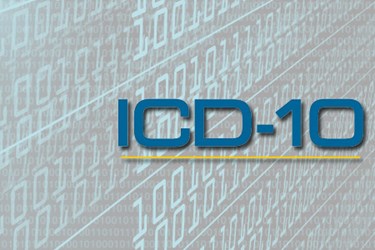CMS Posts ICD-10 Training Webinars For Small Practices

By Christine Kern, contributing writer

Training provided by CMS will focus on the unique ICD-10 clinical documentation needs.
The new deadline for implementing ICD-10 is over a year away, but the CMS is working to engage stakeholders in the transition process as soon as possible to ease the switch. As part of that goal, CMS is offering a series of ICD-10 webcasts for providers of various specialties as part of its "Road to 10" resource for small physician practices.
Posted on a CMS website, this educational resource features ICD-10 webcasts for family practice and internal medicine, pediatrics, cardiology, orthopedics, and OB/GYN.
Each of the “Road to 10” webinar programs will feature an AHIMA-certified coder presenting training focused on unique ICD-10 clinical documentation needs and hot topics for each medical specialty. Each webinar follows the same outline and objectives catering to each medical specialty with specific examples.
The webinars provide directed information and guidance for easing the transition in each medical specialty. For example, Dr. Maggie Gaglione, M.D., Board Certified Internal Medicine and Bariatrics, advises, “Comprehensive documentation is key to identifying and assigning the best diagnosis code. By doing our part and focusing on how we document our patients’ condition we put the foundation in place to drive value based quality and improve the health of populations served.”
And Dr. Mark Bieniarz, Board Certified Cardiologist, and Chief, Cardiovascular Services, Lovelace Medical Center, New Mexico Heart Institute states, “I think we’re in the midst of a cultural change in medicine in general. Particularly when you look at cardiology, where the patients have such acuity, enhancing clinical documentation is, and will continue to be, a critical element to improving outcomes, operating under new payment models, and, above all else, doing the right thing for our patients. We want to be evidenced based in the decisions that we make, and better data allows us to take a step in that direction.”
Content includes physician perspective/clinical impact of ICD-10, documentation requirements for certain conditions, documentation changes and new concepts, and use of “unspecified” in ICD-10.
This new series in in response to urging from The American Health Information Management Association for the CMS to offer help to providers who may have difficulty with the transition from ICD-9 to ICD-10, including small practices and those in rural communities. AHIMA is pressing providers to keep physicians practicing ICD-10-level documentation and for coders to continue training on the new code set.
